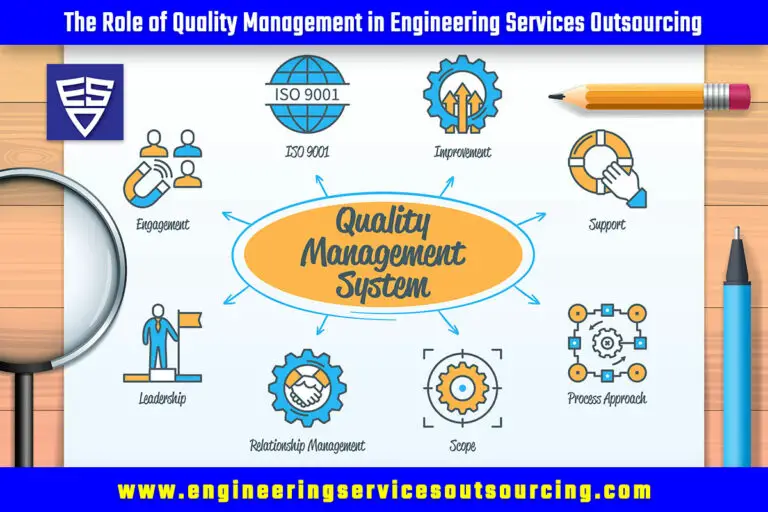
Managing engineering services outsourcing projects can be a complex undertaking, and as such, there are bound to be issues that arise throughout the course of the project. One of the most challenging issues to deal with is escalations. Escalations are situations where a project issue or problem has been raised to a higher level of authority for resolution. They can be caused by a number of factors, including unclear project scope, inadequate communication, unrealistic expectations, and more. This blog post discusses how to manage escalations in engineering services outsourcing projects.
Table of Contents
Establish an Escalation Plan
One of the most important steps in managing escalations in engineering services outsourcing projects is to establish a clear escalation plan. The plan should outline the steps that will be taken when an escalation occurs, including who will be involved in the escalation process, how the issue will be communicated, and what actions will be taken to resolve the issue.
It’s important to establish this plan early on in the project, so that everyone involved understands the process and can act quickly when an escalation occurs. The plan should be reviewed regularly throughout the project to ensure that it remains up-to-date and relevant.
Communication is Key
Effective communication is essential when managing escalations in engineering services outsourcing projects. It’s important to establish clear lines of communication between all stakeholders, including the outsourcing provider, the customer, and any third-party vendors.
When an escalation occurs, the communication should be clear, concise, and timely. All parties involved should be notified of the issue and provided with regular updates on the status of the escalation. This will help to prevent misunderstandings and ensure that everyone is on the same page throughout the escalation process.
Address the Root Cause
When an escalation occurs, it’s important to address the root cause of the issue. This involves identifying the underlying problem that led to the escalation and taking steps to correct it.
For example, if the escalation was caused by a lack of communication, steps should be taken to improve communication between all stakeholders. If the escalation was caused by a misunderstanding of project scope, steps should be taken to clarify the scope and ensure that everyone understands the project requirements.
By addressing the root cause of the issue, you can prevent similar escalations from occurring in the future and improve the overall quality of the project.
Document Everything
Throughout the escalation process, it’s important to document everything. This includes the issue itself, any communication related to the issue, and any actions taken to resolve the issue.
Having a detailed record of the escalation process can be useful for several reasons. First, it can help to ensure that all parties involved are on the same page and understand the issue and its resolution. Second, it can be used to evaluate the effectiveness of the escalation process and identify areas for improvement. Finally, it can serve as a reference for future escalations, helping to streamline the process and reduce the time and effort required to resolve similar issues.
How To effectively manage escalations in engineering services outsourcing projects
To effectively manage escalations in engineering services outsourcing projects, the following steps can be taken:
a) Establish clear escalation protocols:
The first step to managing escalations is to establish clear escalation protocols. The protocol should define the criteria for an escalation, the escalation path, and the expected response time for each level of escalation.
b) Communicate the escalation protocols to all stakeholders:
Once the escalation protocols have been established, it is important to communicate them to all stakeholders involved in the project. This includes the engineering services provider, the client, and any other relevant parties. This will ensure that everyone is aware of the escalation process and their role in it.
c) Monitor the project closely:
To prevent escalations from occurring in the first place, it is important to monitor the project closely. This can be done through regular project status updates, progress reports, and frequent communication with the engineering services provider. By staying on top of the project, potential issues can be identified early on and addressed before they become major problems.
d) Address issues promptly:
When an escalation does occur, it is important to address it promptly. This means responding within the expected response time outlined in the escalation protocol and taking immediate action to resolve the issue. The client should be kept informed of the progress and any steps being taken to address the issue.
e) Conduct a post-mortem analysis:
After an escalation has been resolved, it is important to conduct a post-mortem analysis to determine the root cause of the issue and identify any lessons learned. This analysis can help prevent similar issues from occurring in future projects.

Conclusion
Managing escalations in engineering services outsourcing projects can be a challenging task, but it’s an essential part of ensuring the success of the project. By establishing a clear escalation plan, communicating effectively, addressing the root cause of issues, and documenting everything, you can minimize the impact of escalations on your project and ensure that it stays on track.
Remember, effective communication is key to managing escalations, and it’s important to establish clear lines of communication between all stakeholders involved in the project. By doing so, you can prevent misunderstandings and ensure that everyone is on the same page throughout the escalation process.
Overall, the key to managing escalations in engineering services outsourcing projects is to be proactive, establish clear processes and procedures, and maintain open lines of communication with all.
Managing escalations in engineering services outsourcing projects requires clear communication, close monitoring of the project, and prompt action when issues arise. By establishing clear escalation protocols, communicating them to all stakeholders, and conducting post-mortem analyses, clients can ensure that their projects stay on track and issues are addressed promptly and effectively.
Related Article:






